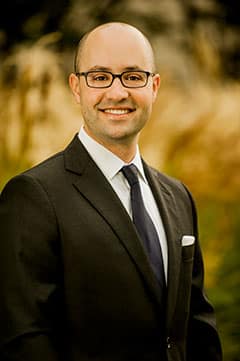
Cars are deadly, filthy, expensive, and obnoxious, and there is a high psychological cost to suffering through traffic twice every workday. The physical isolation caused by cars prevents human connections from being made and causes human connections to be frayed, and cars impede the expression of a city’s cultural character. Pictures that show how beautiful, walkable, and compact that Atlanta was in decades past convey the tragedy of what traffic engineers did by turning over the city to cars. Great cities prioritize walking, biking, and mass transit over driving, traffic, and dodging cars, and they give people what they love—beauty, community, enjoyment—instead of what they hate—ugliness, isolation, boredom. By that metric, Atlanta is far from being a great city. Destroying Atlanta with cars was a tremendous blunder, but it is a blunder that can and should be corrected.
Atlanta should begin this correction by pedestrianizing Peachtree Street between Third Street and Tenth Street. Pedestrianization would lead to residences, shops, outdoor dining, an increase in property values, and countless possibilities for community events. Unlike Underground Atlanta, which has no population anchors, Midtown is highly residential, and Georgia Tech, a university of 36,500 students that lacks a district of restaurants, coffee shops, and bars, is a five-minute bike ride away. Having the Midtown and North Avenue MARTA stations at the respective north and south ends would encourage people to use mass transit, further alleviating traffic, and people from outlying areas would have a reason to take MARTA to Midtown. If Atlanta builds it, they will come.
Cross streets still would be open to cars, so buildings would have sufficient car access. The design of the street would be simple, and since modernists have ruined enough of Atlanta, everything would be done in a beautiful, traditional style. Cobblestones, street trees, benches, tables and chairs, fountains, bike racks, wi-fi, and telling cars to take a hike could lead to a small revolution in urban planning in Atlanta and beyond.
Americans are so afflicted with car dependency that many must think that even slightly reducing car use would mean the death of cities, as if American cities did not function before the early 1900s. However, the experiences of European cities like Amsterdam, which decades ago was clogged with cars but has chosen to minimize their use, prove the opposite, because when cities restrict car use, they flourish with human activity and become the places that Americans save up for years to visit. No Parisian ever has taken a trip to marvel at Spaghetti Junction, at least not in a good way.
To fellow conservatives who think that restricting car access is un-American, I point out that no Founding Father ever drove a car. Cars do not represent freedom. Cars are prison cells, and every second spent in a car is a second squandered. Freedom means having choices, and cities should be structured so that people have the choice to participate fully in them without car ownership.
Reclaiming Peachtree Street would be an important step towards making Atlanta better. There is no good reason why such a famous, centrally located, commercialized half-mile that spans seven city blocks should be dedicated to cars and driving, when it could be dedicated to people and living. Having once again a loveable, livable city can begin by creating a pedestrianized public space that stretches from the Fox Theatre to the home of Margaret Mitchell, who was fatally struck by a car on Peachtree Street in 1949.
Matthew Johnson
Letters to the Editor: The views expressed in articles, columns and Letters to the Editor published in the GwinnettCitizen.com do not necessarily reflect the opinion of the GwinnettCitizen.com.

